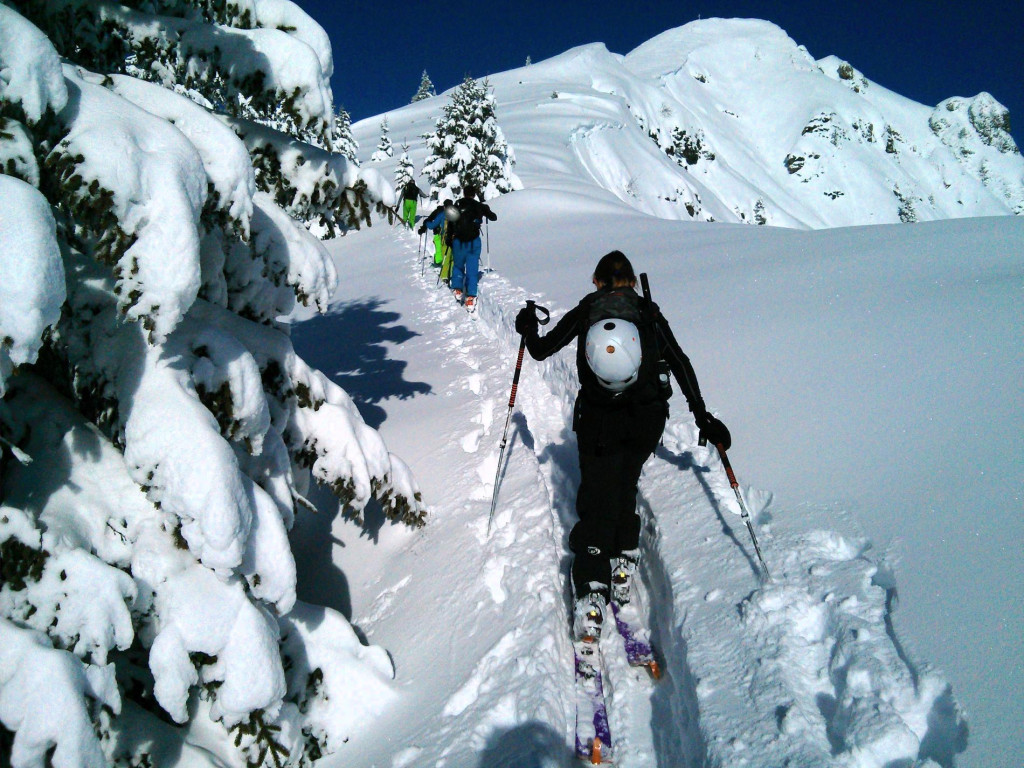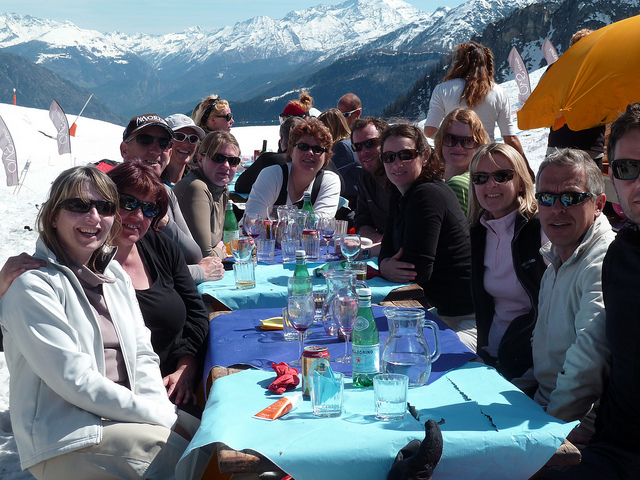This post is also available in: Français (French)
I used to get asked this question twice a week.
“How do I start a chalet business in the Alps?”
I think 2005/6 was the peak. Everyone wanted to move to the Alps, sometimes it was 1 in 4 of the enquiries we received . There was a lull in interest from 2008 to 2011 but the question is returning now. Not to the same level but maybe once a week.
I have learnt over time that the question should really be phrased a bit better. Perhaps:
“how can I make a life in the Alps?”
would be more appropriate. I think the reason that most people assume a Chalet Business is the way to do it is because most people that have gone skiing have witnessed at first hand a chalet business. The holiday cost them €800 so the embryonic business plan started over the dinner table.
€800 x 10 people staying in the chalet = €8,000
€8,000 x 16 weeks for the season = €128,000
That sounds like a lot of money! There must be a margin there?
Obviously you need a chalet or even better a small hotel, then there are the usual bills, food and linen to pay for too but surely there is a fair living to be made? And that’s not including the summer business. Right, sign me up, where do I start?
Well I’ve been there. Now I earn my living from my full time job with Alpine Property I’ve also worked a couple of winter seasons, I did run a chalet business (mostly summer based) for 10 years and now I live in the Alps with my wife and 3 children. Surely living proof that it’s a good idea? Well “Yes” and “No”. I’m now going to give my advice. Feel free to take it with a pinch of salt!
My first bit of advice is “don’t do it”. Well don’t start the chalet business that is. Living in the Alps is a great idea! Have a look at your skills, can you carry them over to the Alps and keep working? That’ could be a possibility? And it might be better in the long term. There are plenty of people that live in the Alps and make a living here or based from here. These are the trades I know of:
Accountants, #pilots, #lawyers, journalists, IT experts, various consultants and #project managers, guides (walking / biking / climbing), ski instructors, electricians, carpenters, plasterers, plumbers, builders, bankers (in Geneva), doctors, nurses, #engineers, estate agents, interior designers, graphic designers, photographers, artists, writers, teachers, taxi drivers, hotels owners and hospitality workers….
The professions marked as # generally work away from home and use the Alps as a base. There are bound to be more, these are just the ones I know personally.
Even with the various jobs I have mentioned there are some fairly thorny issues that you need to take into account. Living in another country is the main one. Of course there is the language but that isn’t half of it. The French have a different attitude to life and this should not be forgotten. In fact it’s crucial. Before I came out I read “60m Frenchman can’t be wrong”. I read it but I didn’t really understand it. I’m still coming to terms with that 14 years later. I’ve three observations to make on this subject.
1. France loves rules. The French pretend they don’t. The state loves rules and regulations though and as far as a profession or job goes you would be well advised to find out about the rules and work within them. In contrast the UK seems to have no rules. Commerce seems to be something that anyone can try their hand at. Not so in France.
2. France is a socialist country. When labour governed in the UK (in my lifetime) they were only pretending to socialist. When Sarko was in charge in France he was only pretending to be right-wing. The fact is it costs a fortune to run a socialist country and this will need paying for. The cost of living in France seems high compared to the UK, everything costs more (almost everything) and everything in a ski resort costs more than that! It seems that in general the French are taxed considerably more that in the UK, this means that everyone needs to charge more to break even.
3. The French value their time off. Be that eating times or weekends. Never get between the French and lunch. An Anglo Saxon might find this funny but if you are French it’s deadly serious. It becomes before business. No question.
So if you don’t feel that you can carry over your current skills and you still think running a chalet is the way forward then hang on! I’ll go on to explain some of the issues and pitfalls in the next post.





Thanks for that, looking forward to the next post!
Great post – spot on. Anyone who has lived there int he resort environment for any amount of time works it out quite quickly.
Well said Gareth – so true!!
Thank you Gareth – It would be really good now to know why not a chalet or small hotel then? I should imagine it is hard work but that can’t be a reason for not doing it, despite the French complexities you mention?
S
It depends what you want from it Scott. If you want to make enough money to make ends meet then you’ll need more than one property, in a convenient location, or a small hotel. Running something of that size will be long hours and a 7 day a week job (during the season), that does suit some people but it is a pretty full-on job. I was trying to suggest alternatives. Many of the approaches we get are from people fixated on running a holiday business, yet there are more “normal” avenues available.
Great article . I have been looking at buying a house in France ideally near the Alps . So interesting you said that France costs more .
This blog post is 10 years old now.